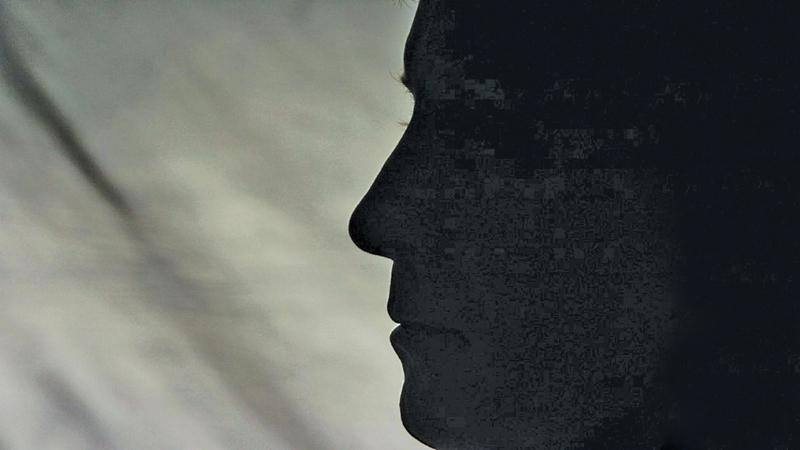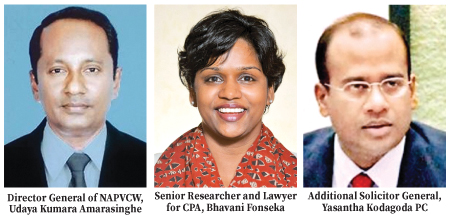
The National Authority for the Protection of Victims of Crimes and Witnesses (NAPVCW) established two years ago by an act of Parliament, claims its work is gaining momentum, but financial resources and staffing continue to hamper its efficiency.
Speaking to the Sunday Observer Board Member of the Authority, President’s Counsel and Additional Solicitor General, Yasantha Kodagoda says that the law has granted rights to a segment that was not recognised previously under the law. “We now have a law based on which victims don’t have to beg, they can come and demand their rights,” he said.
The legislation, Assistance to and Protection of Victims of Crime and Witnesses Act, No. 04 of 2015, gives assistance and protection to both victims and witnesses and also makes provisions for compensation as an interim relief. The latter provision is often the redress victims are seeking. The law provides that a victim can claim up to Rs 1 million as compensation.
 “Most countries have one legal regime and certain executive structures to provide assistance and a different legal regime to provide protection.
“Most countries have one legal regime and certain executive structures to provide assistance and a different legal regime to provide protection.
Those of us who conceptualised this law felt that for a country like Sri Lanka, we could easily do with a single legislative framework. And I think we stand alone,” ASG Kodagoda said.
According to the Director General of the Authority, Udaya Kumara Amarasinghe, providing protection was based on preliminary threat assessments based on the requirement or complaints made. “Once the threat assessment is evaluated we can determine as to the strength of protection that is required. Some may require that a person providing protection must be available throughout, however, in some instances a visit by the police is sufficient,” Amarasinghe said.
A victim of a crime can seek the Authority’s assistance at every stage of which he or she may go through to within the criminal justice system.
“From detection, investigation, pretrial judicial proceedings, consideration of charges, trial, sentencing, appeal and management of penal sanctions, the victim has to participate and walk through this entire process which can be very hazardous, which can even lead to secondary re victimisation due to the very cumbersome insensitive, robust, intrusive, character of each of those phases. Now all this time the state and the law turned a blind eye towards the needs of the victims of crime,” Kodagoda PC said.
Another way of assistance is through compensation. A victim may have to wait for long to get compensation after a civil matter is concluded; there is the need of an interim compensation and interim relief such as medical treatment, plastic surgery that is not immediately available free of charge. Legal assistance to participate in the case is also provided for in the law.
Awareness about the existence of the Authority continues to be a problem, as many victims in need of protection are not always well-versed in how the law is geared to protect them.
The Authority has partnered with Transparency International Sri Lanka (TISL) to design an awareness poster to be showcased all courts, district secretariats, Grama Niladhari offices and other public offices. A series of awareness programmes for the police funded by the UNDP have also commenced. These programmes are in addition to programs the Authority has initiated for lawyers, because officials at the Authority say they have an important role to play. “We have started a programme with the Legal Aid Commission to get them to use their lawyers to appear for victims of crime, ASG Kodagoda explained.
But Kodagoda PC said the Authority was wary about creating ‘hype’ about awareness without being ready to service the need. The Authority could only recruit staff based on state-sector salary scales and it was difficult to attract senior-level professionals at these remuneration scales. Exceptions cannot be made for one authority alone, he added.
“The Human Rights Commission and the OMP are having the same problem. We fall into the category of state owned statutory boards/ institutions. This is why we haven’t been able to fill up the senior positions,” he said.
Senior Researcher and Lawyer for Centre for Policy Alternatives (CPA) Bhavani Fonseka speaking to the Sunday Observer said that the independence of the Authority and its ability to provide protection impartially is paramount.
“Ideally it should be an independent authority that is used for providing protection. The Police is so closely involved in surveillance and harassment. People may fear going to the police to seek protection,” she said.
However, Kodagoda explained that if a person believes that the perpetrator of a crime is a police officer or an associate of a police officer, the act empowers victims to seek protection from a court of law, the Human Rights Commission of Sri Lanka, the Bribery Commission or any ad hoc commission that comes in to being at a given time.
“We expected the HRCSL to establish its own witness protection unit; they have not done it so far, possibly because they also encounter ground realities like the Authority does,” he said.
Under this law, a bail application can only be made at Court of Appeal level. As peculiar as it is, as a contributor to the legal framework PC Kodagoda says that this was introduced as a deterrent. “We wanted to ensure that when the message goes and a couple of people get remanded and they have to wait weeks to get bail, this could work as a deterrent,” Kodagoda explained.
“To me, the integrity of the criminal justice system depends heavily on the protection that is provided and the safety of victims of witnesses,” he added.
However, Fonseka points out that accessibility to the law and the courts are important.
In the event someone from far away is remanded under the Act, to apply for bail he or she has to come before the Court of Appeal. Critics say this may not be an ideal situation.
Another factor that was highlighted was the independence of the authority.
“It is difficult to uphold the independence of an organisation when state actors perceived as loyal to the state are steering such organisations. This can be one of the main reasons that can be attributed to the success of such an organisation. That is why the Office of Missing Persons (OMP) and the Human Rights Commission (HRCSL) has been performing so well. It is important to have independent actors,” Fonseka said.
